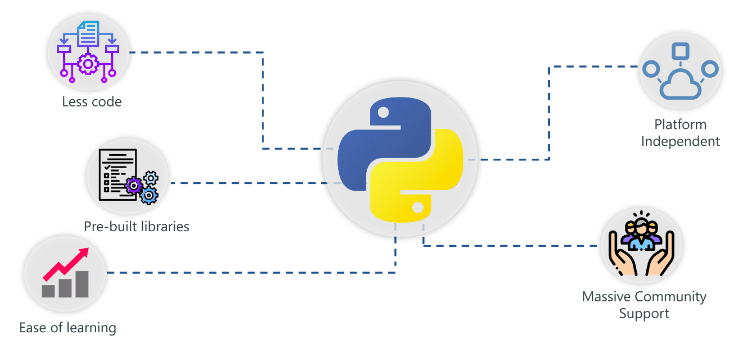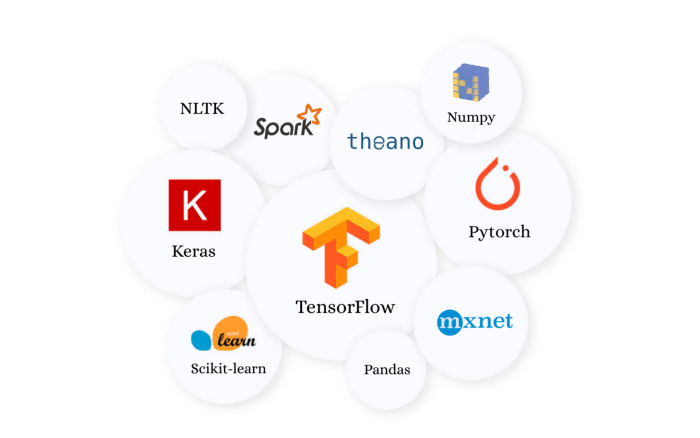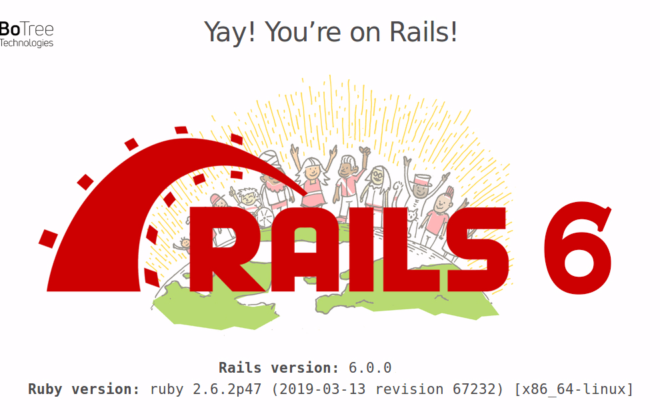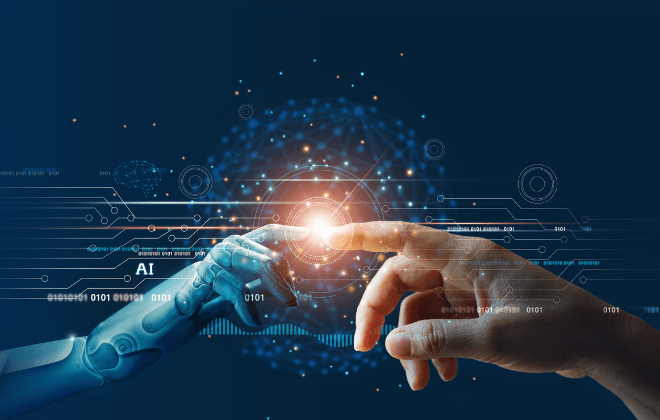
Python libraries for Machine Learning and AI Solutions
Artificial Intelligence (AI) is now helping businesses of all shapes and sizes to make the most of their operational resources. Whether it is the HR department or the Marketing team, AI solutions are enabling organizations to extract valuable insights from every data point they can.
AI engineers all over the world are experimenting with technology to develop ways that can simplify business processes and deliver maximum customer value.
There are countless examples of AI in business where it delivers excellent value. Netflix uses AI for recommendations, Amazon uses it for product suggestions, Tesla uses it in self-driving cars, are a few among countless other examples.
The Secret behind Artificial Intelligence (AI)
By this time, you are at least familiar with what AI means. Artificial Intelligence enables developers to build machines that can imitate human behaviour – the simplest definition.
The real secret behind Artificial Intelligence is Machine Learning algorithms. These algorithms enable application developers to build models, feed them data, train the model, and finally achieve a specific outcome – the main purpose of any AI machine.
Confused between Artificial Intelligence (AI), Machine Learning (ML), and Deep Learning (DL)? Read this blog to know the difference in detail.
Machine Learning (ML) is not a programming language. It is a subset of AI, which has algorithms written in a programming language. These algorithms help in building models and training them. Several programming languages can enable developers to write code for Machine Learning.
Python for AI: Why it’s the perfect Programming Language
Thousands of Python developers around the world agree that Python is one of the best programming languages for Machine Learning and AI solutions.

Why Python For AI – Artificial Intelligence With Python – Source: Edureka
You might already know that the Python programming language has steadily been one of the most popular programming languages. For Python frameworks and Machine learning to work in unison, here’s what you should know:-
- Python has a plethora of libraries and frameworks for Machine Learning. These include Numpy for scientific calculation, SciPy for advanced computing, Pybrain and others.
- Comprehensive support and tutorials are available on Python for AI. Python developers all over the world are ready to assist engineers on different projects.
- Python language enables you to easily characterize the sequence of calculation. You can see them in the view as they are executed – without any discrepancies.
- AI engineers that struggle with Machine Learning algorithms can eliminate this problem by using Python frameworks and libraries. The IDE makes it simpler to check the code.
- Python development company can handle massive data requests as Machine Learning (ML) involves working with huge datasets. It also helps in scaling the Machine Learning application.
There are several AI projects that use Python for web development as well. If you want to integrate AI capabilities in your web application, Python is the right way to go.
What makes Python frameworks best for Machine Learning (ML)
Multiple Python frameworks are available for Python that can simplify Machine Learning. Since these frameworks run on Python, they capitalize on all its features and benefits. Here’s why Python programming language is best for AI solutions built with Machine Learning algorithms:-
- Comprehensive Python libraries
- It would be an understatement to say that Python libraries equip AI engineers with the capability to work with almost any kind of problem.
- Python has a comprehensive selection of libraries that allow them to perform various activities without writing extensive codes for Machine Learning Algorithms.
- Machine Learning (ML) and Artificial Intelligence (AI) require frequent requests exchanged between large volumes of data. Python frameworks like Django are suitably designed to handle such requests. In the next section, we have mentioned the best Python libraries and frameworks that enable the development of AI solutions.
- Coding simplicity
- Python provides reusable coding mechanisms and clear coding structures to reduce the work of Python developers in writing Machine Learning applications.
- Machine Learning and Deep Learning(a subset of Machine Learning), both depend extensively on algorithms with heavy coding to deliver results.
- Python’s simplicity allows application developers to stop worrying about the massive amount of coding required for Machine Learning algorithms. It has a simple syntax, which doesn’t trouble the Python developers, and enables them to test the code without implementation.
- On the other hand, Python programming language is easily readable. Since AI solutions require collective coding between different development groups, it is recommended to use Python for AI.
- No platform limitations
- One of the things that make Python the best AI language is that it is platform-independent. Python developers can implement code on one machine and access it on another.
- As AI engineers and Python developers work coherently to deliver valuable AI solutions, they need to access different machines for their database requirements.
- Python frameworks are easily distributed on different operating systems without a Python interpreter, making it a standalone executable program.
- Machine Learning (ML) requires powerful computing power, and Python web development for AI enables developers to use Google or Amazon for cloud computing. It is an inexpensive option as compared to in-house machines for computation.
- Extensive visualization
- Artificial Intelligence (AI) involves a lot of data, and visualization can help AI engineers make the right decision for implementing a Machine Learning algorithm.
- There are Python libraries and Python frameworks that provide visualization options for delivering data in a human-readable format.
- Python developers can use libraries to make charts, histograms, and graphs to properly represent data points in a visual format.
Using Python for AI and Machine Learning applications are here to change the way the world operates. From diagnosing cancer to predicting demand, they are marking presence in every industry. And Python for AI is the best tool through which AI engineers can achieve more such advancements.
If you want to learn more about Machine Learning, here’s everything you need to know.
Python for web development is now a hot-favourite amongst application developers who want to integrate intelligent and smart computing capabilities in their apps.
Let’s have a look at some Python libraries and Python frameworks that enable Machine Learning purposes.
5 Best Python libraries for Machine Learning(ML) and AI solutions
Now that you know how Python can maximize your AI capabilities, it is essential to understand the best Python libraries and frameworks that make solutions for complex AI problems.

Source: https://towardsdatascience.com/best-python-libraries-for-machine-learning-and-deep-learning-b0bd40c7e8c
As Python is now a proven AI language, here are the five best Python libraries and advantages for Machine Learning:-
- TensorFlow
- Without a doubt, TensorFlow is one of the most popular Python libraries that work with different Python frameworks like Django for Machine learning. It helps in developing neural networks for image recognition, natural language processing, word embedding, and more.
- The biggest advantage for Python developers in using TensorFlow is that it focuses on the comprehensive logic of the app rather than the routine implementation.
- SciPy
- Probably one of the top Python libraries for Machine Learning is SciPy. It combines scientific and analytical computing, allowing AI engineers standardize codes and algorithms.
- SciPy has a plethora of modules for Machine Learning (ML) like linear algebra, image optimization, Fast Fourier Transform, image processing and much more. Its biggest advantage – It works with NumPy arrays to offer effective computational capabilities.
- NumPy
- Python for AI is incomplete without the use of Numpy – one of the most popular Python libraries for Machine Learning. It is more of a general-purpose packaging array than a Python library.
- TensorFlow and SciPy work together with NumPy for manipulating backend data while working with Machine Learning algorithms. It is an efficient multi-dimensional container for any generic data that is in any data type.
- While Python language is a wide preference for Machine Learning and AI solutions, NumPy is the most used Python library due to its comprehensive functional capabilities. Make sure your AI engineers are using NumPy.
Learn about the top 7 Python web development IDEs to work with Python libraries for Machine Learning. Read here.
- Keras Python
- Now Keras Python is one of the most advanced Python libraries for Artificial Intelligence(AI) and Machine Learning. Python developers use it for neural network development and other Machine Learning projects.
- It has wide standalone modules to use in Python for AI. These include image optimization, neural network layers, initialization schemes, cost functions, and more. AI engineers can add new modules easily, similar to adding classes and functions.
- Keras Python is not a library for end-to-end Python web development, but an extensible interface for total expressiveness. It works really well with TensorFlow.
- Pandas
- Without Pandas, any list of the best Python libraries will not make sense. It is increasingly becoming the top choice for Python developers who work with Machine Learning algorithms.
- AI solutions require massive amounts of data analysis. Pandas enable that analysis through facts processing and expressional data structures that can work on both relational and labelled datasets.
- Pandas provides superior performance as it is a highly stable Python library for Machine Learning and Artificial Intelligence. You can work easily with ordered and unordered time-series data, arbitrary data or any other kind of statistical or observational data.
Python is the go-to programming language for Machine Learning
Today, Python is the best programming language for machine learning and first choice of AI engineers who work on AI-based applications and AI solutions.
One of the biggest advantages is that the Python community is so massive that the developers regularly add new libraries to simplify the process of developing Machine Learning applications.
If you are looking for the best Python developers and AI engineers, you must TALK FOR FREE with our experts. Go ahead, get your requirement estimate.




